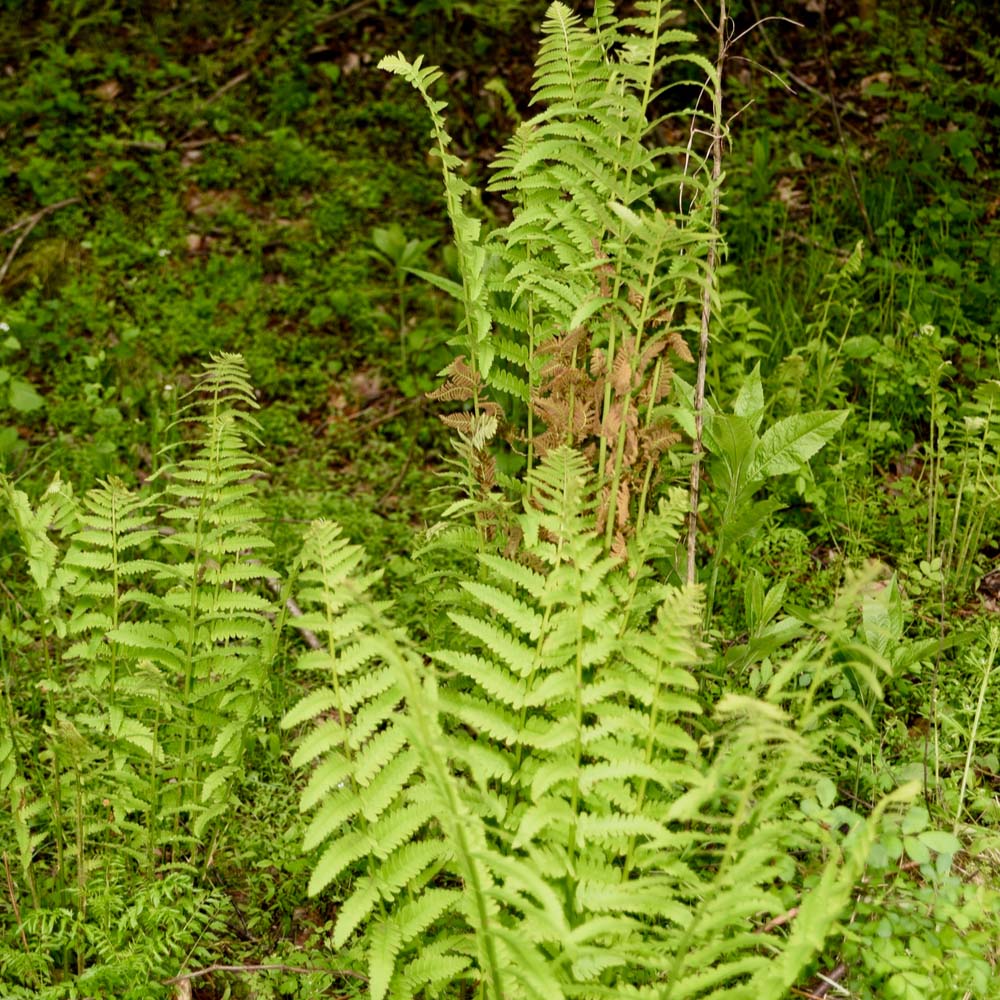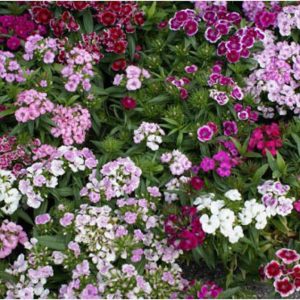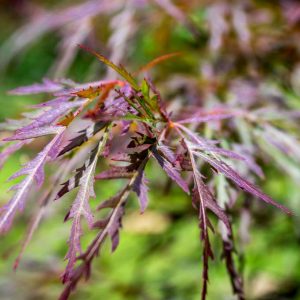Description
Osmunda –
There are about 12 species of large, deciduous, terrestrial ferns in this genus. They occur in damp places and watersides in the Americas, Europe, and Asia. They produce broadly lance shaped to triangular-ovate or ovate, pinnate, 2 pinnate, or 2 pinnatifid sterile fronds arise from large, erect rhizomes and turn yellow or golden brown in autumn. Distinctive, partially or wholly fertile fronds produce branched clusters of spherical greenish sporangia, which turn rust brown or blackish on reduced pinnae. Grow in damp border, or at the margins of a pond or stream, where many, especially O. regalis, make a striking focal point near a waterside.
Grow these fully frost hardy plants in moist, fertile, humus rich, preferably acidic soil, in light, dappled shade, although many are perfectly sited in full sun. Divide in autumn or early spring.
Prone to rust.
O. claytonia – Interrupted Fern – This deciduous fern from Eastern North America and temperate Eastern Asia grows 3-5′ feet tall and 2′ feet wide. It produces shuttlecocks of ovate-lance shaped, pinnate, pale green sterile fronds, to 36″ long, with pinnatifid segments, they surround taller fertile fronds, similar but with some of the pinnae reduced and, in late spring, covered in sporangia, which are initially blackish, later yellow green, then rust brown.
Zones 2-10




